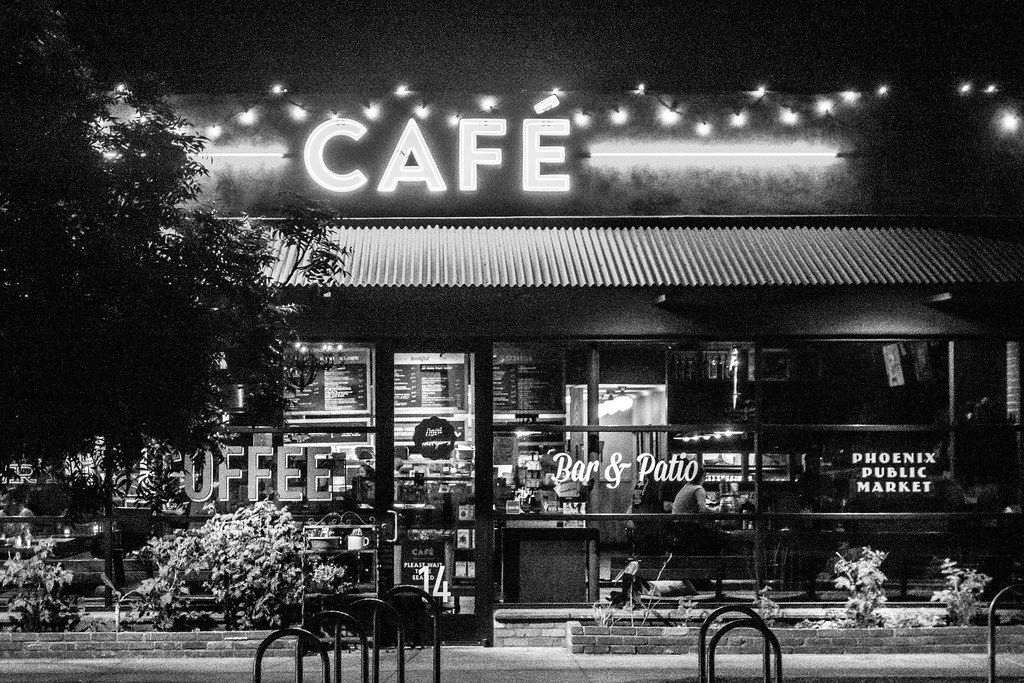Starting a café can be an exciting venture, but it requires careful planning and organisation to ensure success. One of the crucial steps in this process is creating a comprehensive business plan. A well-crafted business plan will serve as a roadmap for your café, helping you to identify opportunities, secure funding, and guide your business towards profitability. In this article, we’ll walk you through the essential elements of a café business plan and how to create one that sets you up for success.
Executive Summary
The executive summary is the first section of your business plan, but it’s often written last. This section provides an overview of your café, including the concept, target market, and financial projections. While it may be tempting to rush through this part, take your time to ensure it accurately represents your café’s vision and objectives.
Company Description
In this section, delve deeper into the specifics of your café. Discuss the type of café you plan to open, whether it’s a specialty coffee shop, a cosy neighbourhood café, or a trendy brunch spot. Provide details on your unique selling proposition (USP), such as locally-sourced ingredients, artisanal coffee, or a themed atmosphere.
Market Analysis
Understanding your market is crucial for any business, and a café is no exception. Conduct thorough research to identify your target audience, their preferences, and spending habits. Analyse your competitors, both direct and indirect, to identify gaps in the market and opportunities for differentiation.
Organisational Structure and Management Team
Outline the organisational structure of your café and introduce your management team. Highlight the roles and responsibilities of each team member, and explain how their skills and experience will contribute to the success of the café. If you’re a sole proprietor, discuss your qualifications and experience in the café industry.
Marketing and Sales Strategy
Develop a comprehensive marketing and sales strategy to attract customers to your café. This should include your branding, pricing strategy, promotional activities, and customer engagement tactics. Consider leveraging social media, partnerships with local businesses, and community events to increase visibility and attract a loyal customer base.
Financial Projections
The financial projections section is where you’ll outline your café’s financial forecasts, including income statements, cash flow projections, and balance sheets. Provide a detailed breakdown of your start-up costs, operating expenses, and revenue projections for the first few years of operation. This information will be crucial when seeking funding from investors or lenders.
Funding Request
If you’re seeking external funding to start or expand your café, clearly outline your funding requirements in this section. Explain how much funding you need, what it will be used for, and the terms you’re offering to investors or lenders. Include any existing or potential assets that can be used as collateral to secure the funding.
Tips and Tricks for Getting Funding
- Prepare a Strong Pitch: Practice your pitch to potential investors or lenders, highlighting the unique aspects of your café and why it’s a lucrative investment opportunity.
- Build Relationships: Networking is key in the business world. Attend industry events, join entrepreneurial groups, and connect with potential investors through social media platforms like LinkedIn.
- Consider Alternative Funding Sources: In addition to traditional bank loans and angel investors, explore alternative funding options such as crowdfunding, grants, or small business competitions.
- Be Transparent and Realistic: Investors appreciate transparency and honesty. Be upfront about the risks involved in your café business and provide realistic financial projections.
- Seek Expert Advice: Consult with financial advisors, mentors, or business consultants to refine your business plan and financial projections. Their expertise and insights can help you present a compelling case to potential investors.
Example Business Plan for a Cafe
—– START —–
Café Lumière Business Plan
Executive Summary
Café Lumière is a chic, eco-friendly café located in the heart of London. Our mission is to provide customers with high-quality coffee, fresh pastries, and a welcoming atmosphere. With a focus on sustainability and community engagement, Café Lumière aims to become the go-to destination for coffee lovers and local residents alike.
Company Description
Café Lumière will offer a diverse menu featuring locally-sourced coffee beans, organic teas, and artisanal pastries. Our café will feature a modern, minimalist design with eco-friendly décor, reflecting our commitment to sustainability. With free Wi-Fi, comfortable seating, and a relaxed ambiance, Café Lumière will provide a unique and inviting space for customers to unwind, socialise, or work.
Market Analysis
Our target market includes young professionals, students, and local residents aged 18-40 who appreciate quality coffee and are conscious about sustainability. We have identified several competitors in the area, but believe there is a gap in the market for a café that combines high-quality products with a strong focus on eco-friendliness and community engagement.
Organisational Structure and Management Team
Founder & CEO: Jane Smith
Head Barista: Mark Johnson
Marketing Manager: Emily Brown
Operations Manager: Sarah WilliamsJane Smith brings 10 years of experience in the café industry, while Mark Johnson is a certified barista with expertise in specialty coffee. Emily Brown and Sarah Williams have backgrounds in marketing and operations management, respectively, and will play crucial roles in growing Café Lumière’s brand and ensuring smooth day-to-day operations.
Marketing and Sales Strategy
Branding: Develop a cohesive brand identity that reflects Café Lumière’s values and appeals to our target market.
Pricing Strategy: Competitive pricing with occasional promotions and loyalty programs to attract and retain customers.
Promotional Activities: Leverage social media platforms, local influencers, and community events to increase visibility and engage with customers.
Customer Engagement: Offer workshops, tasting events, and community initiatives to foster a sense of community and loyalty among customers.Financial Projections
Start-Up Costs: £50,000
Monthly Operating Expenses: £10,000
Projected Monthly Revenue (Year 1): £20,000
Projected Annual Revenue (Year 1): £240,000Break-even Analysis: Café Lumière is projected to break even by the end of the first year, with steady growth expected thereafter.
Funding Request
We are seeking £100,000 in external funding to cover start-up costs, operating expenses, and marketing initiatives for the first year of operation. Funding will be used for leasehold improvements, equipment purchases, inventory, marketing campaigns, and hiring additional staff.
Conclusion
Café Lumière’s business plan outlines a clear and compelling vision for launching and growing a successful café business. By focusing on sustainability, quality, and community engagement, we believe Café Lumière has the potential to become a beloved local café and a profitable venture for investors.
—– END —–
Creating a business plan for a café is a critical step in launching a successful venture. By carefully considering each of the above elements and tailoring them to your café’s unique needs and vision, you’ll be well-prepared to navigate the challenges and opportunities that lie ahead. Remember, a well-crafted business plan is not only a valuable tool for securing funding but also a roadmap that will guide your café towards long-term success.




